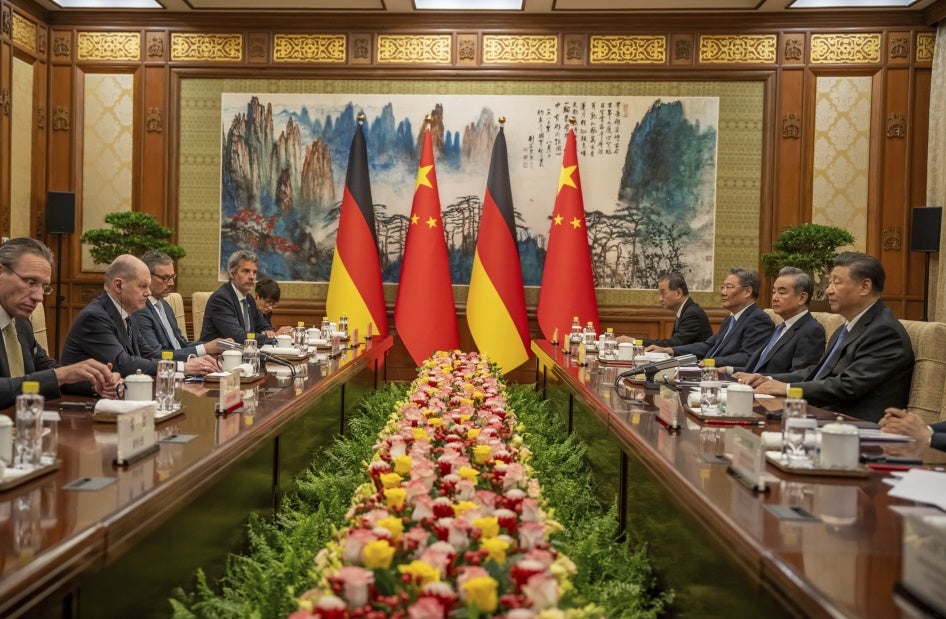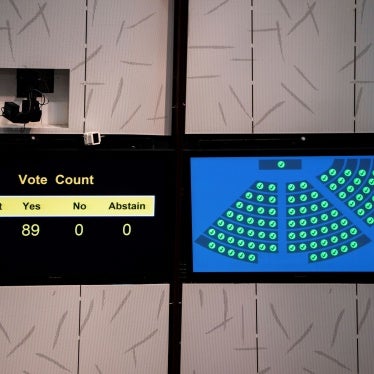Germany's economy is very dependent on China, so expectations were low that Chancellor Olaf Scholz would place human rights concerns prominently on the agenda of his April 13-16 trip to China. But his apparent unwillingness to publicly say the words “human rights” was deeply disappointing.
The Chinese government’s long-egregious human rights record has become dramatically more repressive since Xi Jinping took power in 2013. Thousands of critics of the government are behind bars. The government oppresses and surveils the Tibetan and Uyghur populations and for years has actively suppressed their language, culture, and religion. In recent years, Beijing has deprived the people of Hong Kong’s fundamental freedoms.
Scholz’s three days in China were longer than any of his previous trips since taking office. He came with a huge entourage, consisting of the heads of the largest and most renowned German companies, as well as federal ministers, state secretaries, and the media. He spoke for hours with Xi, campaigned for freer trade for German industries, and sought Chinese support on key foreign policy issues, including over Russia’s invasion of Ukraine. He assured journalists that he had addressed "all the difficult issues," but did not once mention “human rights.”
Sino-German relations are complicated. But even evaluated against its own metrics, the new German China Strategy, the German chancellor did not achieve its aims. The strategy recognizes China as a security threat and geopolitical competitor from which Germany should “de-risk,” and that the two countries’ relations should be rules-based and values-driven. This broadened Sino-German relations from their traditional focus on improving market access for German industries to a more multifaceted one.
But sadly, the German China Strategy proved to be nothing but hollow words. Germany’s experience with Vladimir Putin’s Russia should have made it clear that abusive governments make unreliable trade partners. Instead of steering Sino-German relations on a new course consistent with its own strategy by publicly promoting respect for human rights, Scholz defaulted to the well-worn path that will not further Germany’s long-term interests nor the basic human rights of the people in China.









